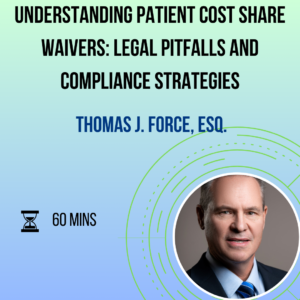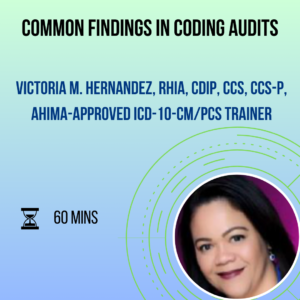Marketing and Empathy Psychology
Grievances and Complaints Ensuring Hospitals Compliance with the CMS CoPs, Joint Commission, DNV Standards and OCR
By - Laura A. Dixon, BS, JD, RN, CPHRM
Lorem ipsum dolor sit amet, consectetur adipiscing elit. Ut elit tellus, luctus nec ullamcorper mattis, pulvinar dapibus leo.
- 06 Aug - 21 Oct 2022
- 10:00 - 12:00
- February 11, 2025 | 1:00 pm (EST) |
- 90 Mins

Hospitals that accept Medicare or Medicaid reimbursement must comply with the CMS Conditions of Participation. The CMS grievance requirements have been a frequent source of deficiency citations. The grievance standards for acute hospitals are in the patient rights section of the Conditions of Participation manual. Although there is no similar section for Critical Access Hospitals, and the requirements for acute hospitals do not apply to CAHs, those facilities should have policies and procedures to address patient rights, including any grievance or complaint.
The federal law enforced by the Office of Civil Rights requirements under Section 1557 of the Affordable Care Act will also be discussed. A hospital must still have a grievance procedure and a designated person to investigate any grievances alleging noncompliance with this law including discrimination.
This program will also discuss the Joint Commission standards on complaints and DNV Healthcare on grievances and how their standards cross walk to the CMS grievance interpretive guidelines.
Staff should be aware of and follow the hospital grievance and complaint policy. The policy should be approved by the board. Staff should be educated in the policy. This program will cover what is now required to be documented in the medical record.
Objectives:
- Discuss that any hospital that receives reimbursement for Medicare patients must follow the CMS Conditions of Participation on grievances.
- Recall that the CMS regulations under grievances includes the requirement to have a grievance committee.
- Discuss that the Joint Commission has complaint standards in the patient’s right (RI) chapter and DNV grievance standard in the patient rights chapter.
- Recall that patients must be provided with a written notice that includes steps taken to investigate the grievance, the results, and the date of completion.
- Describe that the Office of Civil Rights requires hospitals to have a process to handle grievances related to discrimination under Section 1557.
Agenda
This program will cover the following:
- Introduction
- CMS deficiency reports
- P&P requires to ensure patients have information on rights
- Prompt resolution of grievances
- CMS definition of grievance
- P&P with all the required elements
- HIPAA requirements if request not from patient
- Issues surrounding person as an authorized representative
- Telephone complaints after discharge
- Audits and PI required
- Process for prompt resolution
- Requirement to inform each patient on how to file grievances
- Board’s responsibility in grievance process
- Grievance committee required
- Referral to QIO and State Department of Health
- QIOs process
- P&P on grievances
- Written notice to patient requirements
- Time frame for responding to grievances
- 7-day rule
- System analysis approach
- Information for critical access hospitals
- TJC complaint standards
- DNV Health NIAHO standards on grievances
- OCR Section 1557 on complaint process and recent changes
- Policy required
- Grievance process
- Appeal to CEO or board changed
- Timelines for filing grievance on discrimination revised
- Resources and internet links
Who Should Attend:
- Consumer Advocates or Patient Advocate
- All nurses with direct patient care
- All nurse managers
- Joint Commission Coordinator
- All department directors
- Chief Executive Officer (CEO)
- Chief Operating Officer (COO)
- Chief Nursing Officer (CNO)
- Chief Medical Officer (CMO)
- Quality Improvement Coordinator
- Risk Managers
- Nurse Educator
- Patient Safety Officer
- Compliance Officer
- HIPAA privacy and security officer
- Policy and procedure committee
- Ethicist
- Anyone involved in the implementation of the CMS grievance, DNV, OCR, or Joint Commission complaint standards
Vulputate eros arcu magnis donec sem pretium scelerisque a etiam. Eros aliquam elit si mattis phasellus at orci letius ligula posuere. Sodales maecenas facilisis diam egestas dictumst si fames mus fermentum conubia curabitur. Ornare nisi consectetur semper justo faucibus eget erat velit rhoncus morbi.
Speaker Detail

Laura A. Dixon, BS, JD, RN, CPHRM
Laura A. Dixon recently served as the Regional Director of Risk Management and Patient Safety for Kaiser Permanente Colorado where she provided consultation and resources to clinical staff. Prior to joining Kaiser, she served as the Director, Facility Patient Safety and Risk Management and Operations for COPIC from 2014 to 2020. In her role, Ms. Dixon provided patient safety and risk management consultation and training to facilities, practitioners, and staff in multiple states. Such services included creation of and presentations on risk management topics, assessment of healthcare facilities; and development of programs and compilation of reference materials that complement physician-oriented products. Ms. Dixon has more than twenty years of clinical experience in acute care facilities, including critical care, coronary care, peri-operative services, and pain management. Prior to joining COPIC, she served as the Director, Western Region, Patient Safety and Risk Management for The Doctors Company, Napa, California. In this capacity, she provided patient safety and risk management consultation to the physicians and staff for the western United States. Ms. Dixon’s legal experience includes medical malpractice insurance defense and representation of nurses before the Colorado Board of Nursing. As a registered nurse and attorney, Laura holds a Bachelor of Science degree from Regis University, RECEP of Denver, a Doctor of Jurisprudence degree from Drake University College of Law, Des Moines, Iowa, and a Registered Nurse Diploma from Saint Luke’s School Professional Nursing, Cedar Rapids, Iowa. She is licensed to practice law in Colorado and California.
Webinar Information
- Duration : 90 Mins
- Date / Time(EST) : February 11, 2025 | 1:00 pm
- 06 Aug - 21 Oct 2022
- 10:00 - 12:00
- Jakarta, Indonesia
Share this event
Related products
-

Telehealth and E/M Coding Updates for 2025 – Are You Ready?
$199.00 – $349.00 Select options This product has multiple variants. The options may be chosen on the product page -

Understanding Patient Cost Share Waivers: Legal Pitfalls and Compliance Strategies
$199.00 – $349.00 Select options This product has multiple variants. The options may be chosen on the product page -

Common Findings in Coding Audits
$199.00 – $349.00 Select options This product has multiple variants. The options may be chosen on the product page -

Excel for the Mac – Gotchas and Workarounds
$199.00 – $349.00 Select options This product has multiple variants. The options may be chosen on the product page



